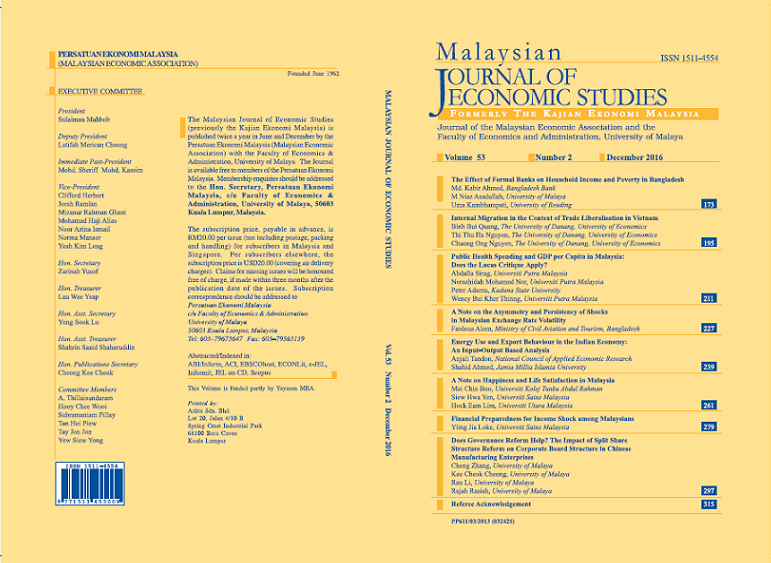Public Health Spending and GDP per Capita in Malaysia: Does the Lucas Critique Apply?
Keywords:
GDP per capita, public health expenditure, superexogeneityAbstract
This study re-examined the public health expenditure and GDP per capita nexus, applying the super exogeneity test developed by Engle and Hendry (1993). We utilised time series annual data for Malaysia from 1970 to 2013, during which the country had witnessed a noticeable increase in Gross Domestic Product and various regime shifts, namely, the “Malaysian Incorporated†policy in 1983, Asian financial crisis in 1998 and the Global financial crisis in 2008. The results of super exogeneity test show that public health expenditure is weakly exogenous and in variance to the policy shifts that have taken place, and therefore it is super exogenous for the parameters of the estimated model. In other words, health expenditure from the public source of financing promotes GDP per capita improvement and Lucas critique does not hold in the case of Malaysia.

